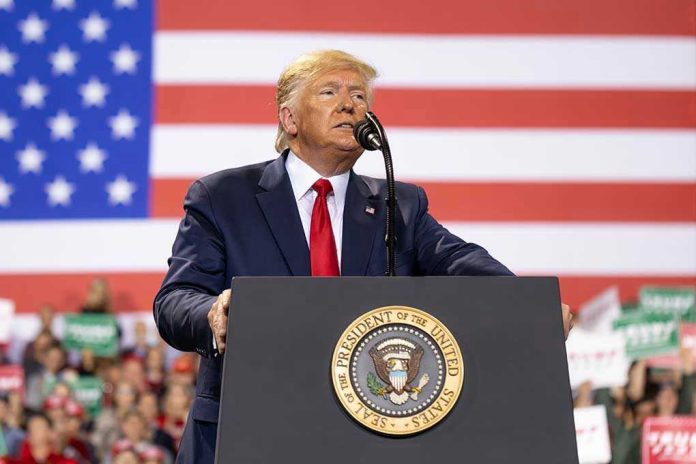
An unprecedented act of political violence has claimed the life of Charlie Kirk, striking at the heart of campus free speech and igniting fierce debate over security and constitutional rights.
Story Snapshot
- Charlie Kirk, a leading conservative activist, was fatally shot during a Turning Point USA event at Utah Valley University.
- President Trump mourned Kirk’s death, calling it a dark moment for America and a major loss for the conservative movement.
- Law enforcement has launched a nationwide manhunt, with no suspect or motive identified as of the latest updates.
- The attack intensifies concerns about campus safety, political polarization, and the future of free speech in America.
Charlie Kirk’s Assassination: A Blow to Conservative Voices and Campus Free Speech
Charlie Kirk, co-founder of Turning Point USA, was shot and killed while speaking outdoors at Utah Valley University. The attack took place during Kirk’s “American Comeback Tour,” a series known for encouraging open debate among students but also drawing controversy and protests. Security was heightened due to prior opposition, yet the assailant managed to fire a shot from the top of a campus building, instantly ending Kirk’s life and triggering a campus-wide evacuation and class cancellations.
Kirk’s death sent shockwaves through the conservative community and the nation at large. President Trump, a close ally of Kirk and a champion of conservative causes, called the assassination a dark moment for America. Trump’s statement underscored the gravity of losing a prominent advocate for youth engagement, free speech, and constitutional values on college campuses. Turning Point USA echoed Trump’s sentiments, declaring Kirk’s legacy as a rallying point for those resisting the erosion of First Amendment rights and the encroachment of radical agendas in higher education.
The Investigation: Unanswered Questions and Heightened Anxiety
Law enforcement responded immediately, evacuating the UVU campus and launching an intensive manhunt involving local police, the FBI, and the Utah Department of Public Safety. Although two individuals were briefly detained and questioned, both were released, and no suspect has been identified. Authorities have asked the public for tips and are reviewing campus surveillance footage. The ongoing investigation has left the conservative community and the entire nation on edge, as fears grow over the possibility of targeted political violence and the lack of immediate justice for a high-profile victim.
The attack has disrupted university operations, closed the campus, and left students and staff traumatized. Vice President J.D. Vance canceled a scheduled 9/11 memorial appearance to visit Kirk’s family, highlighting the deep personal and political ramifications of the incident. Bipartisan condemnation followed, but conservatives remain concerned that fundamental issues—such as campus security and the right to peacefully advocate for traditional values—are not receiving the robust protection they deserve.
Broader Impact: Chilling Effect on Free Speech and Conservative Advocacy
Kirk’s assassination marks a turning point in the debate over free speech and political activism in America’s universities. The event is unprecedented: never before has a nationally recognized conservative activist been killed during a live campus event. In the short term, universities face increased pressure to bolster event security and reassess policies. In the long term, there is a real risk that such violence will deter robust debate, silence conservative voices, and embolden those who seek to shut down viewpoints they oppose.
'Dark moment for America': Trump declares Charlie Kirk's voice 'bigger and grander' after assassination https://t.co/VWJJJRujCW #FoxNews
— Ricardo Torres (@Rickytuna123) September 11, 2025
Free speech advocates and conservative leaders warn that overreaction could stifle campus debate, while others urge a coordinated and transparent response to ensure safety without sacrificing constitutional freedoms. Security analysts emphasize the challenge of protecting public figures in open settings, especially amid a political climate that has grown more polarized and hostile to dissenting views. This tragedy has intensified scrutiny of university policies, law enforcement preparedness, and the willingness of society to defend traditional American values in the face of rising threats.



